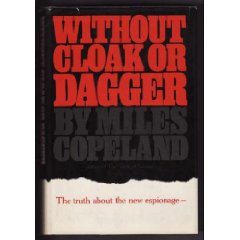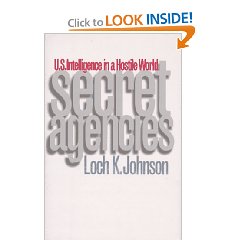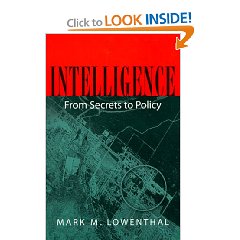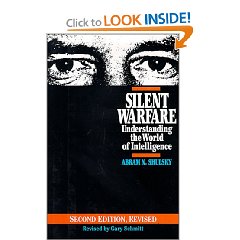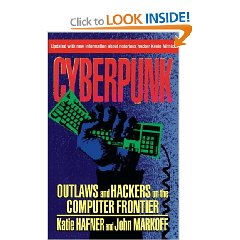To his credit, Copeland understood very early on that the spy world was missing out on what is known today as Open Source Intelligence (see my own book, “The New Craft of Intelligence” or view the 30,000 free pages at OSS.Net). The description on pages 41-42 (of the original hard-cover version) of how “Mother” concocted an entire network and got the head of Secret Intelligence to agree its production was worth $100,000 a year (big money in 1946), only to reveal that his source was actually five issues of The New York Times “demonstrated not only the naiveté of our nation's only existing group of espionage specialists but the value of ordinary New York Times reporting on matters regarded as being of high-priority intelligence interest.” Nothing has changed in 50 years. We still need our spies, but they need to be a bit more serious, a bit less white, a lot older, and much more focused. We lack–we need–men of the caliber of Dulles and Copeland today.
Review: The Craft of Intelligence
5 Star, Intelligence (Government/Secret)Strategic intelligence for American world policy
Strategic Intelligence & Statecraft: Selected Essays (Brassey's Intelligence and National Security Library)
The New Craft of Intelligence: Personal, Public, & Political–Citizen's Action Handbook for Fighting Terrorism, Genocide, Disease, Toxic Bombs, & Corruption
Review: Secret Agencies–U.S. Intelligence in a Hostile World
5 Star, Congress (Failure, Reform), Executive (Partisan Failure, Reform), Intelligence (Government/Secret)Review: Intelligence–From Secrets to Policy
4 Star, Decision-Making & Decision-Support, Executive (Partisan Failure, Reform), Intelligence (Government/Secret)This is an excellent elementary text for the average college student. Over-all it is strong on issues of analysis, policy, and oversight, and weak on collection, covert action, and counterintelligence. The chapter on collection has a useful figure comparing the advantages and disadvantages of the five collection disciplines, and but does not get into the detail that this aspect of the intelligence community-80% of the annual expense-merits.

Review: The U.S. Intelligence Community–An Annotated Bibliography (Garland Reference Library of the Humanities)
4 Star, Intelligence (Government/Secret)Review: Silent Warfare–Understanding the World of Intelligence (Intelligence and National Security Library)
Intelligence (Government/Secret), War & Face of BattleReview: CYBERPUNK–Outlaws and Hackers on the Computer Frontier, Revised
3 Star, Asymmetric, Cyber, Hacking, Odd WarThree case studies are provided, including one dealing with Robert Morris, son of a distinguished NSA scientist and the person who brought America to a standstill with an epidemic electronic virus. By two distinguished journalists who knew little about hackers but could recognize a great story when they saw one, this is one of the more important early books that erroneously labeled hackers as criminals and electronic criminals as hackers.


